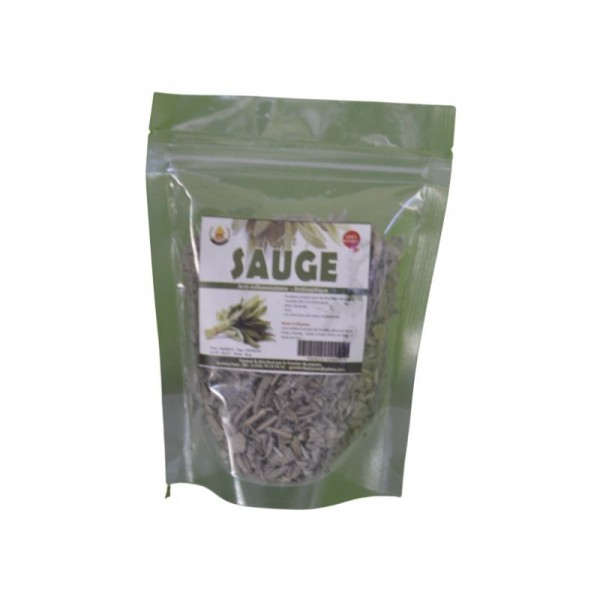



Sage has multiple medicinal properties, from regulating perspiration to that of menstrual cycles, including sore throats, gingivitis and wound disinfection. Its use other than culinary, however, requires some precautions due to the strong presence of thujone in its essential oil.
Internal use
External use
Astringent and antiseptic: Fresh sage leaves can be used as first aid in the event of a bite or sting. Sage disinfects wounds and helps in healing.
Usual therapeutic indications
Oral and pharyngeal disorders, digestive disorders, regulation of perspiration, menopausal disorders and those related to the menstrual cycle.
Other therapeutic indications demonstrated
Fièvre, effet hypoglycémiant.
Dosage
Contraindications
Sage is contraindicated in pregnant and breastfeeding women, in children, in cases of known allergy or epilepsy (not for use in food). It is formally contraindicated in the event of a history of hormone-dependent cancers.
Side effects
By respecting the doses, sage only very rarely causes side effects, which in this case result in nausea or vomiting. On the other hand, beyond 15 g per day, it is likely to cause palpitations, hot flashes, convulsions and dizziness.
No known interaction.
Due to the amount of vitamin K contained in sage and its anticoagulant action, this plant should be used with caution in people undergoing anticoagulant medication. Sage is also likely to interact with medicines for anxiety (benzodiazepines), mental disorders (neuroleptics) and epilepsy.
Data sheet